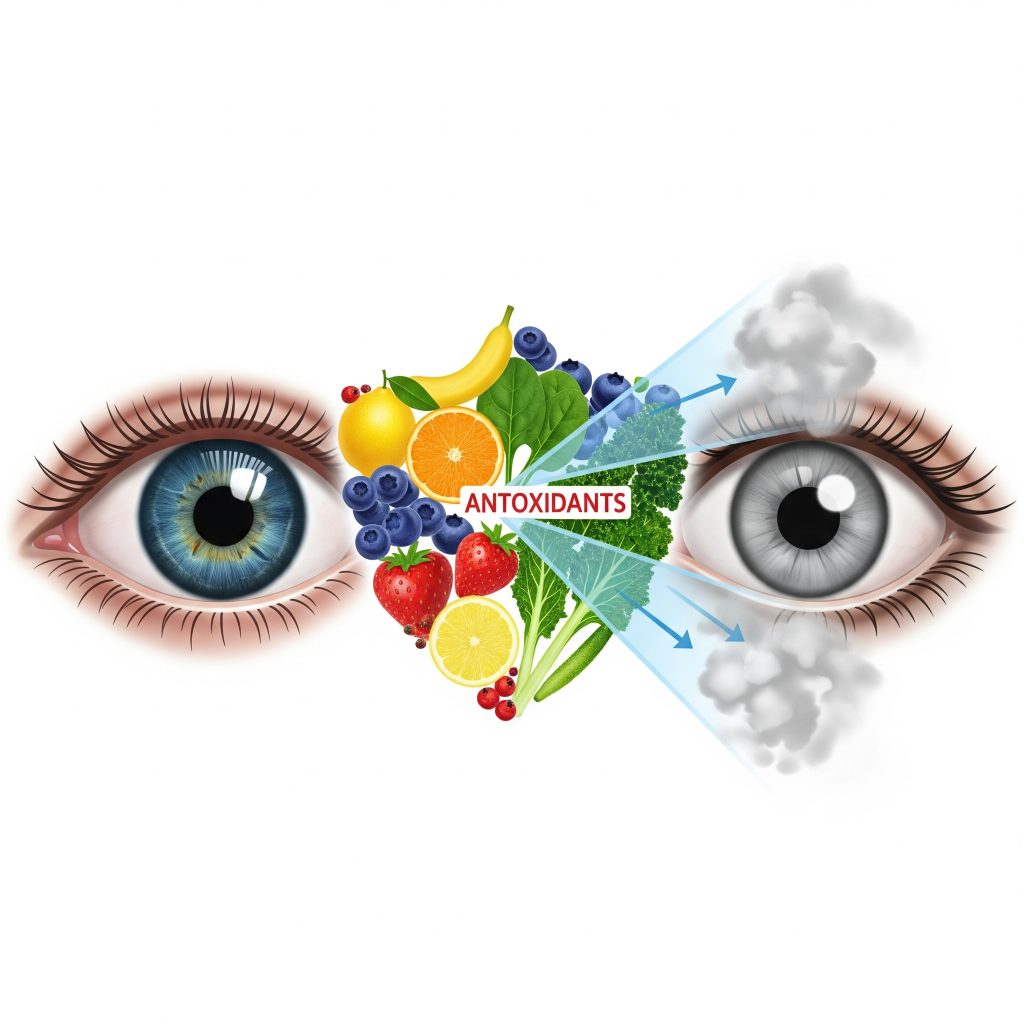
Antioxidants — The Role of Antioxidants in Preventing Cataracts
Cataracts form when proteins in the lens become cloudy, often due to accumulated oxidative damage. Antioxidants serve as protective defenders, neutralizing harmful free radicals that can harm delicate lens cells and lead to visual clouding.
Antioxidants such as vitamin C and vitamin E have been associated with a lower risk of cataracts, especially when consumed through a diet rich in fruits, vegetables, nuts, and seeds. While these foods may help slow cataract progression, research on supplementation—particularly single nutrient supplements—has shown mixed results.
Carotenoids like lutein and zeaxanthin, found in leafy greens, eggs, and brightly colored produce, not only act as antioxidants but also help filter out high energy blue and ultraviolet light that can damage the lens. Dietary intake of these nutrients has been linked to reduced risk of nuclear cataracts and enhanced lens protection at the cellular level.
Complex antioxidants such as polyphenols from green tea and resveratrol have shown promising protective properties in lab studies. These compounds may help prevent cataract development by inhibiting protein aggregation in the lens and shielding lens cells from oxidative stress.
While evidence for standalone antioxidant pills is inconsistent, a balanced, nutrient rich diet combined with careful supplementation when necessary offers solid potential benefits. This approach can support cataract prevention without depending solely on high dose supplements or unproven remedies.
At Findlay Creek Eye Clinic, we encourage patients to embrace a holistic eye friendly lifestyle. This includes enjoying a diverse diet rich in natural antioxidants, practicing protective habits like wearing UV safe eyewear, attending regular eye exams, and seeking personalized guidance to support long term lens health. Nourishing your vision begins with mindful choices at mealtime.